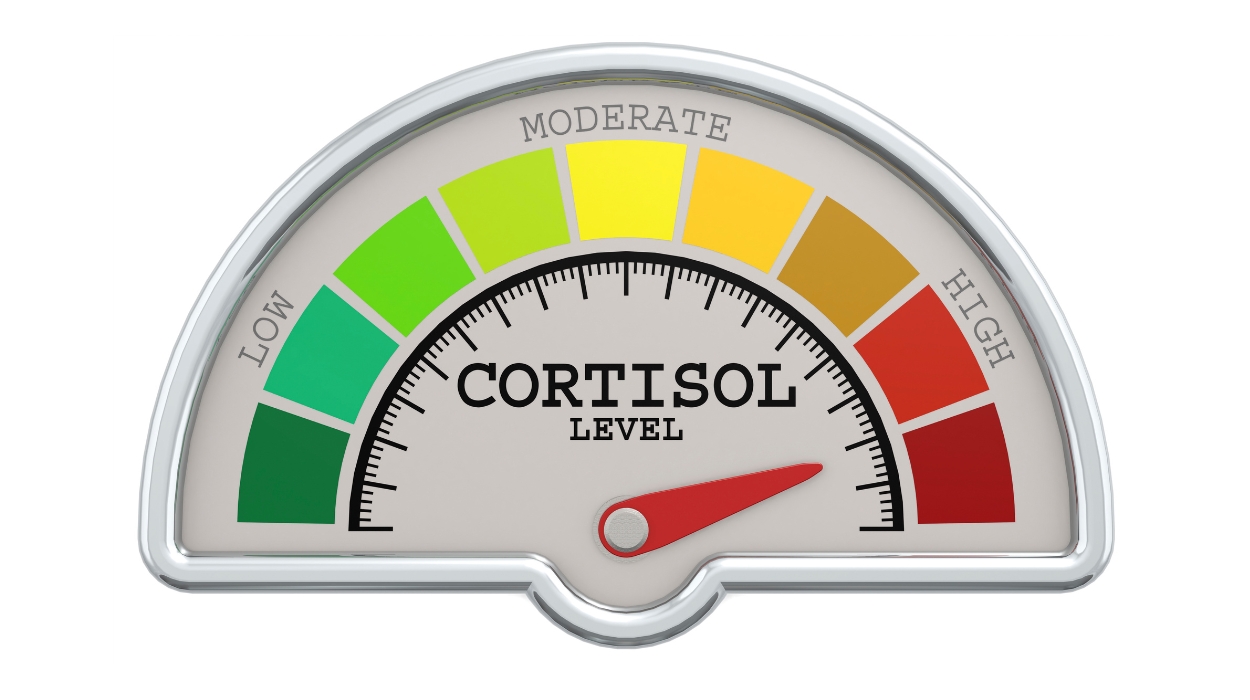 Expert's opinion
Expert's opinion
Expert's opinion
The article is a subjective view on this topic written by writers specializing in medical writing.
It may reflect on a personal journey surrounding struggles with an illness or medical condition, involve product comparisons, diet considerations, or other health-related opinions.
Although the view is entirely that of the writer, it is based on academic experiences and scientific research they have conducted; it is fact-checked by a team of degreed medical experts, and validated by sources attached to the article.
The numbers in parenthesis (1,2,3) will take you to clickable links to related scientific papers.
Cortisol And Exercise 2024: Does Exercise Raise Cortisol? What Will Happen?

Cortisol is called the stress hormone for a reason, and some studies show that working out may stimulate cortisol production in the body.
Is it time to kiss your gym membership goodbye? Before investing in a new line of weight loss supplements, check out this guide. It’s totally possible to get your sweat on without being totally overwhelmed by excess cortisol in your body.
Does Cardio Increase Cortisol?
One of the most common environmental factors that prompt the release of cortisol is stress, either physical distress or perceived distress, but we’re more concerned with the way that mental stress intersects with exercise training. What happens to your cortisol and your stress levels when you push yourself too far at the gym?
In order to kick your body’s cortisol response into overdrive, you need to exceed 60% of your own maximal oxygen uptake[1] (VO2max) for fifteen minutes or more, your concentrations peaking around thirty minutes after your workout. Here’s what happens when your adrenal glands overproduce cortisol, including during a weight training session at the gym.
Does Exercise Raise Your Cortisol Levels?
A few major governing agents mediate the cortisol stress response in the body—the hypothalamus, the pituitary gland, and the adrenal gland, a fusion known as the hypothalamic–pituitary–adrenal axis.
The three organs share a sort of messaging system; after a specific combination of related hormones from the hypothalamus and the pituitary gland has been detected by the adrenal gland, it releases cortisol into your blood, causing your elevated cortisol levels.
One of the most common environmental factors that prompt the release of cortisol is stress, either physical distress or perceived distress, but we’re more concerned with the way that mental stress intersects with exercise training. What happens to your cortisol and your stress levels when you push yourself too far at the gym?
In order to kick your body’s cortisol response into overdrive, you need to exceed 60% of your own maximal oxygen uptake[1] (VO2max) for fifteen minutes or more, your concentrations peaking around thirty minutes after your workout. Here’s what happens when your adrenal glands overproduce cortisol, including during a weight training session at the gym.
What Is Cortisol? What Is The Connection Between High-Intensity Exercise And Cortisol?
Cortisol, also called hydrocortisone or CORT for short, is known[2] as the stress hormone—high blood cortisol levels trigger our natural fight-or-flight response.
The body’s response to cortisol through the endocrine system includes psychological stress, among other cortisol functions that may be contributing to a vicious cycle, all without you knowing it.
Cortisol is part of a family of adrenal gland secretions called glucocorticoids. Once they’ve been produced in the cortex of the relevant glands, cortisol seeps into the bloodstream, where it proceeds to do its work.
Cortisol plays an important role as an anti-inflammatory and as a way for your body to manage your metabolism, blood glucose, blood pressure, salt, and water levels. It also aids the brain in the formation of new memories and even in the development of an embryo or fetus in the womb.
During an intense workout, your levels of cortisol may both help you and hinder you, depending on how your body tends to react to “stressful” situations.
The Negative Effects Of Too Much Circulating Cortisol
Some diseases like Cushing’s syndrome and Addison’s disease are characterized by an imbalance in cortisol and other hormones related to its production and allocation—the former is known for causing a person’s body to produce too much cortisol. At the same time, the latter leaves the patient in a near-constant cortisol deficit.
Some of the side effects of too much cortisol include
- Weight gain in the face and the trunk of the body, but not in the arms and legs
- A flushed complexion
- High blood pressure
- A reduction in bone density
- Stretchmarks, strange bruises, and other anomalies related to the skin
- A distinct weakness in the muscles
- Anxiety, depression, mood swings, stress, and irritability
- The need to urinate more often than usual
- Irregularities in one’s menstrual cycle
- A reduction in libido
It’s an ironic twist of fate, but it’s true—in its natural context, cortisol gives us the energy we need when our own survival hangs in the balance. However, domestic, modern life can have the opposite effect: we feel weak, emotional, full of worry, and indecisive.
Too little cortisol, however, and we feel exhausted and disconnected. Those with Addison’s may experience unusual weight loss and similar skin defects as those on the opposite side of the coin; it’s a lethal condition if left unchecked.
As far as endurance exercise relates to chronic stress and cortisol levels, the hormone has been linked[3] to a greatly reduced protein synthesis capability within the body. The metabolism of your connective tissue and other important processes, such as collagen reproduction elsewhere in the human body.
How To Maintain Healthy Cortisol Levels During Intense Workouts
You may be wondering: “How do I reduce cortisol during exercise?” Your hormonal levels during regular exercise will largely be intensity-dependent.
The good news is that if you’re already very active, your cortisol response to exercise will be reduced[4] when compared to somebody else who might be less fit. Men tend to experience higher cortisol levels than women after exercise, but the body’s condition has much more to do with this process than gender.
If your body’s stress hormones are putting a damper on your endurance training, here are a couple of quick tips to keep in mind:
- Pace your intensity levels to match your athletic performance capabilities; if High-Intensity Interval Training, or HIIT, workouts are sending you over the edge, we recommend dialing back your strength training, and perhaps even seeking the advice of a personal trainer.
- Be sure to allow your major muscle groups to rest between intense aerobic exercise sessions; rest periods are just as important as the time that you spend sweating.
- Your cortisol levels and everyday stress tend to be much higher in the morning; if you can, try to reserve your physical fitness routine for later in the afternoon or evening.
- Endurance athletes worldwide will be able to speak to the power of adequate fuel intake; recovery meals are vital to a healthy lifestyle and will help you reduce stress, gain muscle mass, and slow the aging process by staving off elevated levels of cortisol.
Cortisol is a natural part of everyday life, and it’s one of the body’s most powerful tools. It shouldn’t be considered something evil when you’re able to build a healthy relationship with these systems; you may find that exercising helps you regulate the release of cortisol.
Can Exercise Reduce Cortisol Levels?
Some of the benefits of exercise include[5] the difference in mood and even things like sleep quality; its ability to decrease stress is key when your health, energy, and hormone production become too much of a problem to simply ignore.
It’s been shown that low-intensity activity[6] evokes a much tamer cortisol response than more vigorous cardio or weight training.
If your workout routine appears to be responsible for disruptions in your sleep patterns and even your mood, you might want to consider dialing things back a notch for the sake of your health. After a week, consider how things have developed, and let your sense of intuition lead the way. Restorative yoga is one awesome way to relax and reduce your cortisol blood levels.
Moderate, regular physical activity may reduce high cortisol back down to normal levels, as in this study[7] on cortisol concentrations in a group of subjects with major depressive disorder.
The Research Doesn’t Lie: Our Bodies Need Cortisol
Physical stress is no fun for anybody. However, this vital hormone is highly beneficial to our health and well-being in the right doses and at the right times. We let our hearts lead the way whenever we feel ourselves falling out of balance emotionally – if excess cortisol is driving you up the wall after each workout, we recommend taking a break, even if it’s just one morning or afternoon, taking it easy.
+ 10 sources
Health Canal avoids using tertiary references. We have strict sourcing guidelines and rely on peer-reviewed studies, academic researches from medical associations and institutions. To ensure the accuracy of articles in Health Canal, you can read more about the editorial process here
- Budde, H., Machado, S., Ribeiro, P. and Wegner, M. (2015). The cortisol response to exercise in young adults. Frontiers in Behavioral Neuroscience, [online] 9. Available at: https://www.ncbi.nlm.nih.gov/labs/pmc/articles/PMC4315045/
- Chen, C., Nakagawa, S., An, Y., Ito, K., Kitaichi, Y. and Kusumi, I. (2017). The exercise-glucocorticoid paradox: How exercise is beneficial to cognition, mood, and the brain while increasing glucocorticoid levels. Frontiers in Neuroendocrinology, [online] 44, pp.83–102. Available at: https://pubmed.ncbi.nlm.nih.gov/27956050/
- Tripathi, G. and Verma, P. (2003). Pathway-specific response to cortisol in the metabolism of catfish. Comparative Biochemistry and Physiology Part B: Biochemistry and Molecular Biology, [online] 136(3), pp.463–471. Available at: https://pubmed.ncbi.nlm.nih.gov/14602154/
- Childs, E. and de Wit, H. (2014). Regular exercise is associated with emotional resilience to acute stress in healthy adults. Frontiers in Physiology, [online] 5. Available at: https://www.ncbi.nlm.nih.gov/labs/pmc/articles/PMC4013452/
- Vic.gov.au. (2017). Exercise and mental health – Better Health Channel. [online] Available at: https://www.betterhealth.vic.gov.au/health/healthyliving/exercise-and-mental-health
- Hill, E.E., Zack, E., Battaglini, C., Viru, M., Viru, A. and Hackney, A.C. (2008). Exercise and circulating Cortisol levels: The intensity threshold effect. Journal of Endocrinological Investigation, [online] 31(7), pp.587–591. Available at: https://pubmed.ncbi.nlm.nih.gov/18787373/ [Accessed 18 Feb. 2022].
- Beserra, A.H.N., Kameda, P., Deslandes, A.C., Schuch, F.B., Laks, J. and Moraes, H.S. de (2018). Can physical exercise modulate cortisol level in subjects with depression? A systematic review and meta-analysis. Trends in Psychiatry and Psychotherapy, [online] 40(4), pp.360–368. Available at: https://pubmed.ncbi.nlm.nih.gov/30570106/



